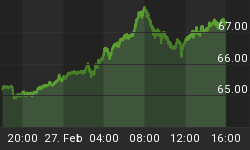On Sunday, July 13, the Federal Reserve Board voted to give Fannie Mae and Freddie Mac access to the discount window at the Federal Reserve Bank of New York. This action effectively transforms a perceived implicit guarantee of Fannie and Freddie liabilities into an explicit guarantee. If Fannie or Freddie should have any problem funding their activities, they can now tap the New York Fed's discount window facility for funds. Also on July 13, the Treasury asked Congress for authority to increase its line of credit to the two government sponsored enterprises (GSEs) by an unspecified amount from the current $2.25 billion already in place for each. Also, the Treasury asked Congress for authority to inject capital into the two GSEs. My bet is that Congress will grant the Treasury the authority to increase its line of credit and to inject capital into the two GSEs by a sufficient amount that will effectively guarantee to liabilities of the two. My bet also is that the Treasury will not have to actually lend a dime to Fannie or Freddie when the authority is granted. And I suspect that Fannie and Freddie will not feel the need to avail themselves of the Federal Reserve's discount window generosity. Why? Because, as mentioned above, an implicit guarantee of these GSEs' is now an explicit guarantee. Once fixed-income investors know this, they will have no credit-risk qualms about buying Fannie's and Freddie's paper.
That was painless, wasn't it? Or was it? Now that Fannie's and Freddie's paper is guaranteed by the Fed and is likely to be guaranteed by the Treasury shortly, if you were inclined to buy Treasury securities, why not buy a near-perfect substitute that is paying a slightly higher yield? In short, the yields on Treasury securities are likely to be higher than they otherwise would be as investors switch out of Treasuries into GSE paper. This means that the Treasury's debt service costs going forward also will be higher than they otherwise would be. And, this means that the current or future tax burden on U.S. taxpayers will be higher than it other wise would be. As I have said on more than one occasion, there is no such thing as a free bailout. Some entity will pay.
I don't know what will happen to Fannie and Freddie's stockholders, although I do have some opinions as a taxpayer as to what I would want. To the degree that the Fed and the Treasury are guaranteeing their debt, Fannie and Freddie stockholders benefit. If Fannie and Freddie are more highly regulated, which will reduce their profitably even in "good times" and if Fannie and Freddie will be required to hold more capital to reduce their 68-to-1 leverage ratio, then new equity issued to the private sector will entail a high cost. Who wants to invest in a company whose profitability will be restrained? In this case, the dilution that current Fannie and Freddie stockholders will bear will be a bear. Presumably, if the Treasury were to inject capital into these GSEs, political pressure also would dictate that current Fannie and Freddie stockholders bear a high dilution price.















